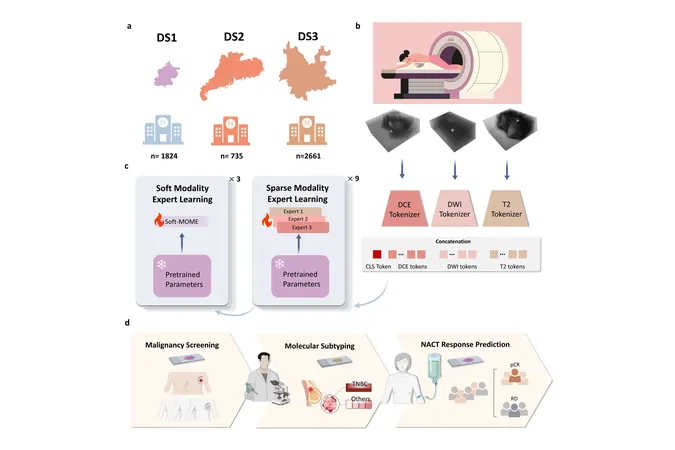
Revolutionary Engineered Bacterium May Be Key to Combating Mercury Poisoning!
2025-05-06
Author: Siti
Transforming Toxicity: The Breakthrough Discovery
A groundbreaking study from UC San Diego’s Scripps Institution of Oceanography and UCLA has unveiled an engineered bacterium capable of converting the most toxic form of mercury found in seafood—methylmercury—into less harmful compounds. This remarkable innovation could revolutionize detoxification therapies, especially for pregnant women and children who are most vulnerable to mercury-induced neurological impairments.
Quick and Effective: How It Works
The star of this study, Bacteroides thetaiotaomicron, demonstrated impressive results, ridding the digestive systems of mice of methylmercury in as little as 12 hours. This potent microbe significantly reduces mercury levels in both tissues and feces, presenting a promising avenue for detoxification.
A Growing Concern: The Mercury Crisis
Mercury pollution, primarily generated by coal burning and artisanal gold mining, seeps into our oceans and converts into methylmercury—a substance that accumulates in aquatic food chains. As it moves up the food chain, from algae to predator fish, humans who consume seafood with high mercury content are at serious risk.
Culinary Tradition at Risk: Why Fish Matters
Despite health warnings urging expectant mothers to avoid certain fish, researchers like study co-senior author Amina Schartup highlight the struggle—many rely on fish as their primary protein source. "Fish is not only a vital nutrient for many but also a cultural staple worldwide that shouldn't be forsaken," Schartup insists.
Could Probiotics Save the Day?
Envision a future where a simple probiotic could mitigate the risks associated with eating fish high in methylmercury, especially during pregnancy. This is the hopeful vision of UCLA’s Elaine Hsiao, who is passionate about the potential of this engineered microbe.
From Research to Reality: The Journey Ahead
The collaboration, sparked in 2021 through the Scialog initiative aiming to explore the intersection of microbiomes and health, has yielded significant progress. Initially focused on understanding the dangers of mercury, Schartup's frustration with merely diagnosing problems morphed into an exciting quest for solutions alongside Hsiao, a microbiome expert.
A Multi-Disciplinary Effort: The Power of Teamwork
By cleverly engineering strains of bacteria to demethylate methylmercury, the research team has made strides in an area where others have only scratched the surface. Previous studies have explored other bacteria that reduce lesser toxic forms of mercury, but none have tackled methylmercury’s neurotoxic effects as effectively as B. thetaiotaomicron.
Funding Challenges: A Race Against the Clock
As they look to enhance the bacterium's efficacy for human applications, the need for sustained federal funding becomes increasingly pressing. The looming budget cuts at the National Institutes of Health threaten the progress on this transformative project.
A Bright Future Ahead
With a talented team rallying together, including several UCLA and Scripps researchers, the hope is to bring this solution to life. As the fight against mercury toxicity continues, the vision of a safer seafood experience for future generations may be closer than ever!





 Brasil (PT)
Brasil (PT)
 Canada (EN)
Canada (EN)
 Chile (ES)
Chile (ES)
 Česko (CS)
Česko (CS)
 대한민국 (KO)
대한민국 (KO)
 España (ES)
España (ES)
 France (FR)
France (FR)
 Hong Kong (EN)
Hong Kong (EN)
 Italia (IT)
Italia (IT)
 日本 (JA)
日本 (JA)
 Magyarország (HU)
Magyarország (HU)
 Norge (NO)
Norge (NO)
 Polska (PL)
Polska (PL)
 Schweiz (DE)
Schweiz (DE)
 Singapore (EN)
Singapore (EN)
 Sverige (SV)
Sverige (SV)
 Suomi (FI)
Suomi (FI)
 Türkiye (TR)
Türkiye (TR)
 الإمارات العربية المتحدة (AR)
الإمارات العربية المتحدة (AR)